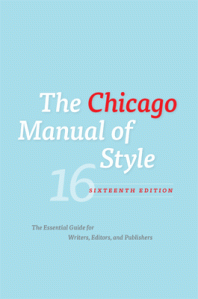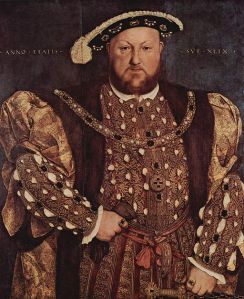 Terms of endearment are often used in casual conversation. Each has their own implications which are highly dependent on tone of voice, body language, and social context.
Terms of endearment are often used in casual conversation. Each has their own implications which are highly dependent on tone of voice, body language, and social context.
They can be fairly impersonal, denoting a friendship. Conversely, they can be intimate, indicating a close relationship.
Used by perfect strangers they can also be patronizing and rude.
These words vary in creativity from the sublime to the ridiculous:
- dear
- mate
- chum
- darling
- honey
- baby-cakes
- sweetheart
- sugar
- wuvvy-dovey
From Wikipedia, the fount of all knowledge: Saying “Hey baby, you’re looking good” varies greatly from the use “Baby, don’t swim at the deep end of the pool!” Certain terms can be perceived as offensive or patronizing, depending on the context and speaker. (end quoted text.)
This brings us to the word “son.” Again, as in so many other aspects of the writing craft, context is everything.
- “I love you, Son,” said the doting father.
 From the Chicago Manual of Style, Section 8.35: Kinship names are lower-cased unless they immediately precede a personal name or are used alone:
From the Chicago Manual of Style, Section 8.35: Kinship names are lower-cased unless they immediately precede a personal name or are used alone:
- my father and mother
- Aunt Jane
- the Bronte sisters
- I believe Grandmother’s name was Marie
- Please, Dad, let’s go.
- She adores her aunt, Maud
But, in the past, instead of a boy’s name, men commonly called boys boy, kid or son, not as a name but as a neutral term of endearment. My interpretation of the word “son” in casual conversation is like this: I feel it should not be capitalized if it is being used to indicate friendship, or in a patronizing fashion.
Wikipedia claims that in an informal setting, such as a pub or gym, the use of terms of endearment is a positive politeness strategy among men. A term like “mate” or “son” shifts the focus toward the friendship existing between the speakers, yet maintains a slight emotional distance.
The problem here is the term “son.” In some cases, it is used when speaking to a man not related, but indicates friendship on the part of an older speaker in regard to a younger companion. I feel that, when used as a neutral form of endearment, the word “son” falls into the same class as:
- Hand me the scissors, darling.
- Have a beer, mate.
- Gloria, dear—how’s your mother?
- Grab that remote for me, love.
- How’ve you been, old son?
The above endearments are not between speakers with a deep emotional attachment. They indicate camaraderie and nothing more–they are neutral. Therefore, “son” should not be capitalized if it is being used as a neutral term of endearment when speaking to a person you are not related to.
- “Okay, son. Tell your ma I stopped by,” said his neighbor.
- “Get off your high-horse, son,” said man next to him.
As stated above, The Chicago Manual of Style’s preference has always been to lowercase pet names, (which are terms of endearment) but in reality, you can’t go wrong unless you’re inconsistent, since the issue is guided by preference rather than rule.
The word preference means:
- a greater liking for one alternative over another or others.
synonyms: liking, partiality, predilection, proclivity, fondness, taste, inclination, leaning, bias, bent, penchant, predisposition
So, if you do choose to capitalize the word “son” when used as a term of endearment, be consistent. But also be aware that it’s not necessary.
Then there is the question of the word “sir.” It is an honorific. From the Chicago Manual of Style section 8.32
 Honorific titles and respectful forms of address are capitalized in any context with several exceptions:
Honorific titles and respectful forms of address are capitalized in any context with several exceptions:
- sir
- ma’am
- my lord
- my lady
Always capped:
- Madam Speaker
- Your Honor
- Your Excellency
- Her (His, Your) Majesty; His (Her, Your) Royal Highness
- The Most Reverend William Ronstadt (Roman Catholic Bishop)
- Lord John Davies; Lady Mary Shelton
- The First Gentleman; the First Lady
- The Right Honourable John Carter
Where king/queen is used as part of someone’s name, it is always capitalized:
- King Bob, and Evelyn, the Queen of Darkness
Where king/queen is used as part of a general reference it is lower-cased:
- “Hello,” said the king.
Should one capitalize the word sir when it’s used in dialogue? Which of the following would be correct? “Yes, sir.” OR “Yes, Sir.”
 If the reply is to a respected person in general, it is written with no capital, as it’s not a formal name. But you do need a comma just as you would with a formal name:
If the reply is to a respected person in general, it is written with no capital, as it’s not a formal name. But you do need a comma just as you would with a formal name:
- “Yes, sir.” (General politeness.)
- “Yes, Sir Paul.” (Formally agreeing with a knight.)
- “Yes, Larry.” (Proper use of comma.)
When writing dialogue: if your speaking character is in the military and the person he/she is addressing has a military rank above them, THEN you must capitalize it.
If you are writing about Sir Paul McCartney’s favorite brand of socks, capitalize it.
You must also capitalize the words “sir” and/or “madam” when beginning a letter or an email. My favorite internet example of this is:
Dear Sir or Madam,
I am writing to inform you that you a related to a Nigerian prince. (Grammar Party Blog)
Just refer to me as “my lady” from here on out. Email doesn’t get better than that!








In regards to son, mom, dad, and daughter I capitalize if it’s used in lieu of a proper name. Example, Mother might say, “Come here, Robert.” Or, “Come here, Son.” Is my concept in agreement with your thoughts?
LikeLiked by 1 person
Yes–if spoken by a parent in lieu of a name, then it is capped!
LikeLike
Is it bad if I can’t read past the pic of Mr. Hiddleston, Connie? *twinkle*
LikeLiked by 1 person
Enjoy the day as you will, darling. One does not argue with the god of mischief.
LikeLike
As always, your posts illuminate the language, Connie 🙂
LikeLike
Pingback: #amwriting: kinship names and terms of endearment | Life in the Realm of Fantasy